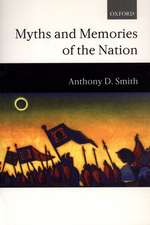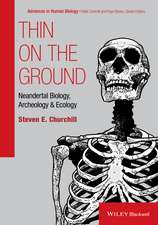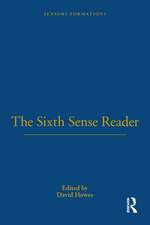Contested Landscapes: Movement, Exile and Place
Editat de Barbara Bender, Margot Wineren Limba Engleză Paperback – 6 ian 2001
Preț: 369.73 lei
Nou
Puncte Express: 555
Preț estimativ în valută:
70.75€ • 74.08$ • 58.68£
70.75€ • 74.08$ • 58.68£
Carte tipărită la comandă
Livrare economică 10-24 aprilie
Preluare comenzi: 021 569.72.76
Specificații
ISBN-13: 9781859734674
ISBN-10: 1859734677
Pagini: 402
Ilustrații: 50 b&w illustrations, bibliography, index
Dimensiuni: 156 x 234 x 20 mm
Greutate: 0.45 kg
Ediția:1
Editura: Taylor & Francis
Colecția Routledge
Locul publicării:Oxford, United Kingdom
ISBN-10: 1859734677
Pagini: 402
Ilustrații: 50 b&w illustrations, bibliography, index
Dimensiuni: 156 x 234 x 20 mm
Greutate: 0.45 kg
Ediția:1
Editura: Taylor & Francis
Colecția Routledge
Locul publicării:Oxford, United Kingdom
Cuprins
Acknowledgements, List of Contributors, List of Illustrations, Introduction, 1. The Shadow of the Sacred Rock: Contrasting Discourses of Place under the Acropolis, 2. Matter and Memory in the Landscapes of Conflict: The Western Front 1914–1999, 3. Contested Landscapes in Inner Mongolia: Walls and Cairns, 4. Negotiating the River: Cultural Tributaries in Far North Queensland, 5. Crannogs: Places of Resistance in the Contested Landscapes of Early Modern Ireland, 6. Landscapes of Punishment and Resistance: A Female Convict Settlement in Tasmania, Australia, 7. Cultural Keepers, Cultural Brokers: The Landscape of Women and Children – A Case Study of the Town Dahab in South Sinai, 8. Whose New Forest? Making Place on the Urban/Rural Fringe, 9. The Political Economy of Landscape: Conflict and Value in a Prehistoric Landscape in the Republic of Ireland – Ways of Telling, 10. Bringing Contemporary Baggage to Neolithic Landscapes, Comments on Part I: Intersecting Landscapes, Responses to Julian Thomas’s Comments, 11. Landscape and Commerce: Creating Contexts for the Exercise of Power, 12. Pilgrimage and Politics in the Desert of Rajasthan, 13. Landscapes of Separation: Reflections on the Symbolism of By-pass Roads in Palestine, 14. Rites of Passage: Travel and the Materiality of Vision at the Cape of Good Hope, 15. Landscapes, Fear and Land Loss on the Nineteenth-Century South African Colonial Frontier, 16. Places of Longing and Belonging: Memories of the Group Area Proclamation of a South African Fishing Village, 17. Homes and Exiles: Owambo Women’s Literature, 18. Egypt: Constructed Exiles of the Imagination, 19. Migration, Exile and Landscapes of the Imagination, 20. Hunting Down Home: Reflections on Homeland and the Search for Identity in the Scottish Diaspora, Comments on Part II: Far From Home, Responses to Nick Shepherd’s Comments, Index
Notă biografică
Barbara Bender Professor in Heritage Anthropology,University College London Margot Winer Associate Professor, Saint Mary's College of California and Co-ordinator, SMC Study Abroad Program, University of Cape Town
Descriere
Landscapes are not just backdrops to human action; people make them and are made by them. How people understand and engage with their material world depends upon particularities of time and place. These understandings are dynamic, variable, contradictory and open-ended.














